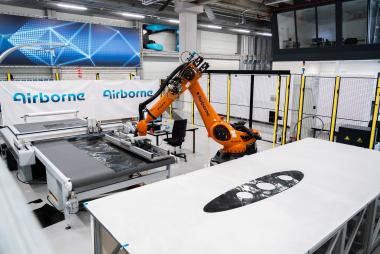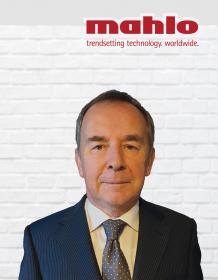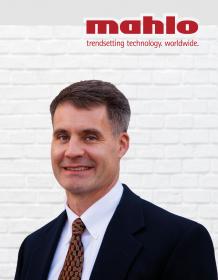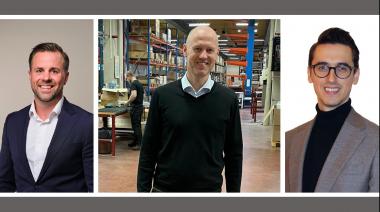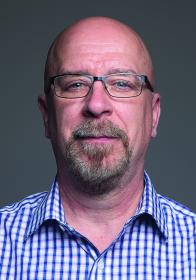VDMA textile machinery webinar on sustainable dyeing involved Monforts, DyStar® and Goller
Over 600 delegates from 58 countries subscribed to the latest VDMA textile machinery webinar on sustainable dyeing held on February 3rd, 2022 – a record since the monthly online series started in June 2020. The webinar, entitled ‘Resource-saving in Textile Processing – Continuous Dyeing and Washing’, involved the three companies Monforts, DyStar® and Goller.
In outlining the capabilities of Monforts Thermex hotflue lines for the Econtrol® continuous dyeing process, the company’s Textile Technologies Engineer Jonas Beisel observed that the current industry focus is very much on cleaner processes and products in accordance with the Corporate Social Responsibility (CSR) commitments of the major fashion brands, and with further regulations to be expected.
Cellulosics
Econtrol® is a continuous process for the dyeing of woven cellulosic fabrics that has already been well proven on the market, with over 150 Monforts Thermex lines already in operation at mills worldwide.
Reactive dyestuffs are fixed into the fabric in a one-step dyeing and drying process with a controlled combination of steam and air. The entire pad-dry process takes just two-to-three minutes at a temperature of between 120-130°C and a relative humidity volume of 25-30%.
Benefits
The Econtrol® pad-dry process has a number of immediate benefits. Compared to the common pad-dry-pad-steam process, no salt is used and no steamer is required for a separate fixation step.
Compared to the pad-dry-thermofix process, no urea is used and no smoke or deposits are generated, and unlike with the cold pad batch process, direct feedback of the dyeing results ensures no batching time is necessary and guarantees good reproducibility from the lab to bulk production.
Complementary services and systems
Complementing the Monforts presentation during the webinar, Bertram Seuthe, Global Business Development Manager at DyStar, outlined the importance of specific Levafix® /Remazol® reactive dyes and Dianix® disperse dyes for sustainable dyeing processes such as Econtrol®, Cadira® Continuous and CPB knit. In these processes Sera® auxiliaries are also employed for optimised wash-off results.
Guido Seiler, Area Sales Manager at Fong's Europe, also introduced the latest developments of the Goller brand for the washing process, which can reduce water consumption by between 10 to 20%, as well as reductions in both heating energy and waste generation, depending on the specific fabric construction and required shade.
Monforts / DyStar Singapore Pte Ltd










